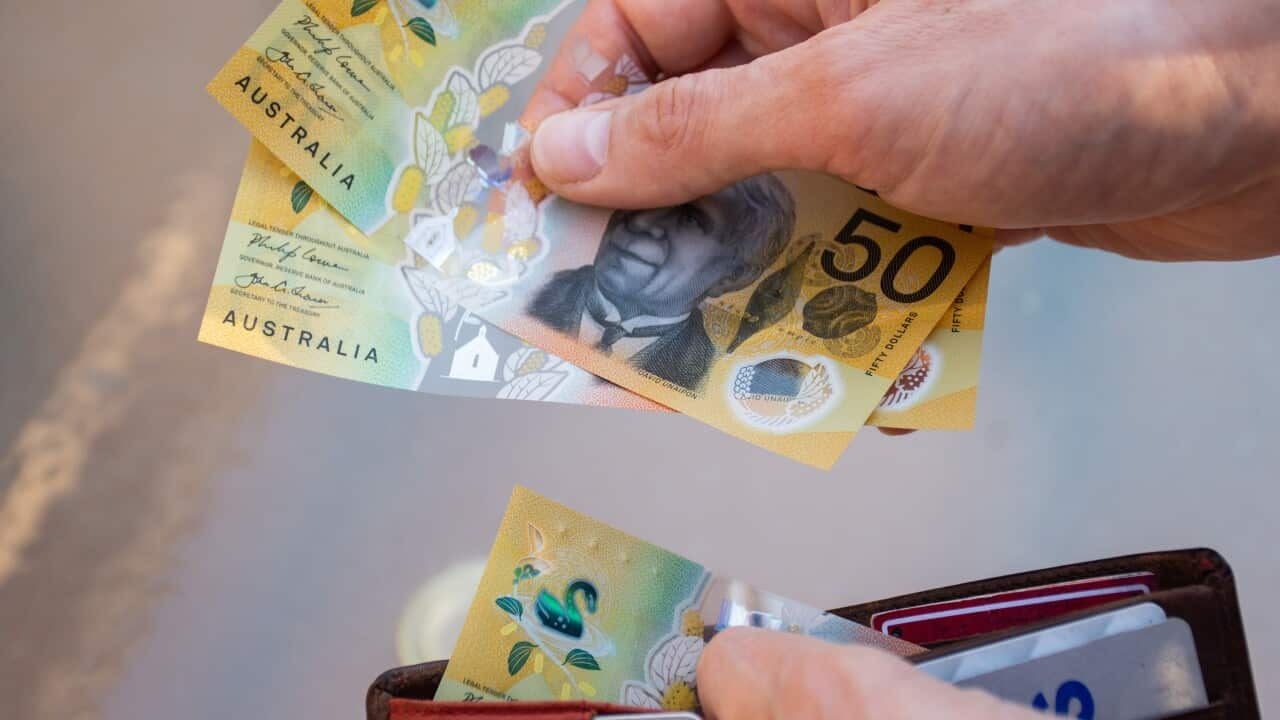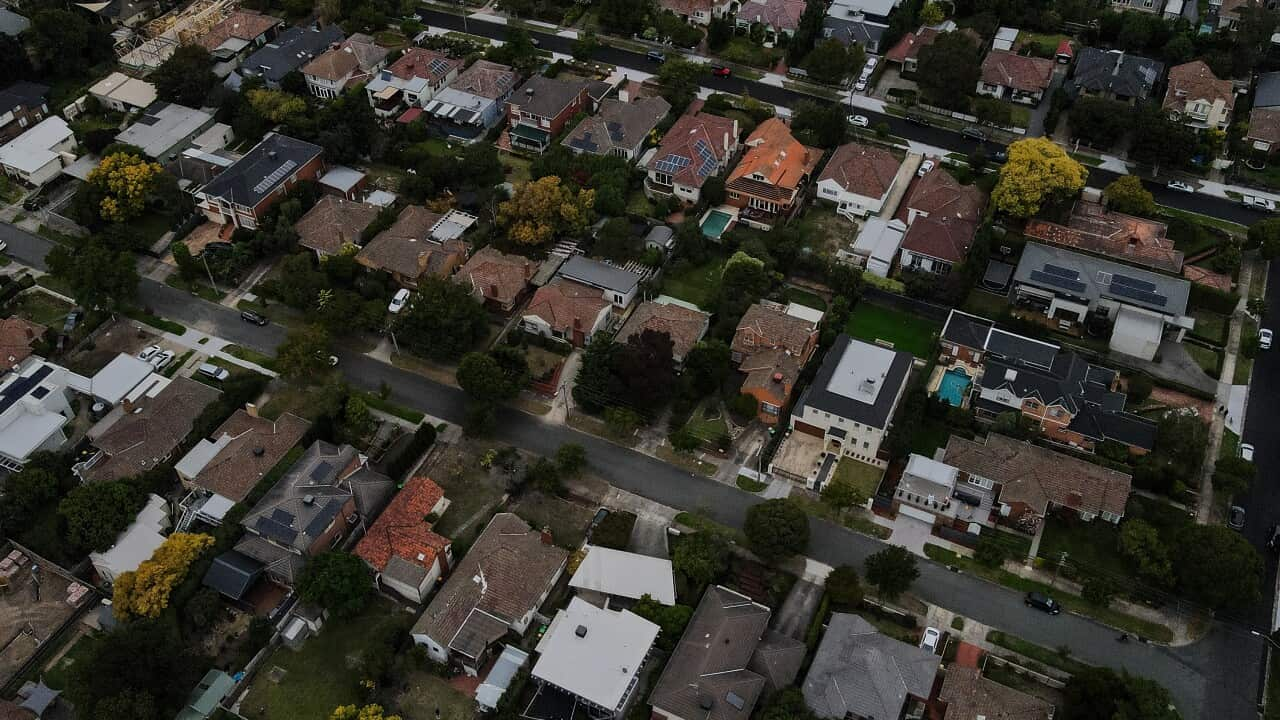Key Points
- The prices of goods and services are expected to rise over time, and steady inflation helps balance the economy.
- The Reserve Bank of Australia uses interest rates as a tool to influence consumer spending.
- There are steps individuals can take to reduce the impact of inflation on their personal finances.
The Reserve Bank of Australia (RBA) wants inflation to go down. So do the many Australians struggling with the rising cost of living.
In the 12 months to May, inflation rose by 4 per cent, according to data released by the Australian Bureau of Statistics (ABS) on Wednesday morning.
It was a 0.4 per cent rise since April, when inflation came in at 3.6 per cent, slightly higher than economists predicted.
Australia's quarterly inflation rate peaked at a 32-year high at the end of 2022 and, while progress has been made to slow the pace of the growing economy, it has not slowed as much as the central bank had hoped.
Individuals are active participants in the nation's economy, of course, but can we do anything to help lower inflation?
How does inflation work?
Inflation is an increase in the price of goods and services, measured as the rate of change in those prices.
Jessica Amir, a market strategist from global investment and trading platform Moomoo, said inflation keeps an economy growing.
"The first coffee that I bought as an adult was $2.80," she said.
"I’ve seen a cup of coffee now cost, at some places, $8 — that is inflation.

Inflation is an increase in the price of goods and services, measured as the rate of change in those prices. Source: Getty / Alexander Spatari
"That's naturally what happens in an economy, but it just so happens that inflation has broadened and COVID-19 really put inflation on the map because inflation was almost at a record all-time high."
The ABS noted housing, food and non-alcoholic beverages and transport, alcohol and tobacco were the main contributors to the annual rise.
"CPI inflation is often impacted by items with volatile price changes like automotive fuel, fruit and vegetables, and holiday travel," Michelle Marquardt, the ABS' head of prices statistics, said.
Deloitte Access Economics partner Stephen Smith said gradual price increases gave people an incentive to buy today, rather than hold their money to buy something at a later date if it might become cheaper.
"Also, it is the case that over time, the value of money tends to rise and so it's important that the price of goods and services rises over time as well, but what the central bank is trying to do is to keep the rate of inflation relatively steady over time."
The RBA has said it is targeting sticky inflation - inflation that sticks around, despite economic measures designed to force it down.
Australia's current inflation situation
"Inflation has come down a long way from those peaks that we saw just after the outbreak of the pandemic, but the most recent couple of months has seen inflation kind of flatline if you like, rather than continue to fall," Smith said.
The RBA closely monitors inflation and it is the central consideration in its interest rates decisions.
Australia has an official inflation target rate of 2-3 per cent and the bank has been seeking to bring inflation back down by increasing interest rates.
A total of 13 rate increases have been implemented since May of 2022.
The However, inflation data from March showed that inflation had not continued on the same downward trend.
"A little bit of inflation is good, as long as it's steady over time," Smith said.
Can consumers make a difference to inflation?
Smith said it was "hard to say, to any one person, you can do X, Y and Z, and it'll make a big difference [to inflation]."
John Hawkins, a senior lecturer in economics at the University of Canberra agreed.

Monthly inflation data from the Australian Bureau of Statistics shows the increase during the pandemic. Credit: SBS News
"Unless, if you happen to be the treasurer or the governor of the Reserve Bank, or maybe Gina Rinehart, as an individual you can’t do much to change inflation," he said.
"The primary influence on inflation is what the Reserve Bank does; it's their job to keep inflation down."
Hawkins said the government could also influence inflation.

John Hawkins, senior lecturer in economics at the University of Canberra, says the RBA's ability to influence Australians' financial activities gives it a key role in controlling inflation. Source: Supplied / David Beach
The logic is that, by providing Australians with a $300 energy rebate, people will save a small amount of money that they would have otherwise spent on their bills.
While there is concern that as a result of saving money on a bill, surveys show people were likely to bank at least a portion of these savings, Hawkins said.

Having a healthy economy relies on a balance between keeping people in jobs, demand for goods and services and spending. Source: Getty / Images By Tang Ming Tung
How to lower the impact of inflation on you
Amir said that, while individual actions were unlikely to make a difference to the nation's inflation rate, individuals could reduce the impact of inflation on their personal finances.
"You can cut out some inflation. We know that utility bills are going to continue to hit record all-time highs and there's ways to mitigate utility bill inflation — and that's by moving to solar," she said.

Jessica Amir says that, while there is little individuals can do to make a difference to the rate of inflation, they can reduce the personal costs of things such as utility bills. Source: Supplied
While an influx of people purchasing solar systems beyond the current rate could have an impact on inflation, Amir said that, in the current economy, "it kind of seems like every man for himself, so Aussies really need to start taking charge of their own finances".
How the RBA influences Australians' spending
"Essentially, the instrument they've got is moving interest rates and if they put interest rates up, that is likely to make people spend less," Hawkins said of the RBA.
"About a third of households have a mortgage — and they're mostly floating rate mortgages — so if interest rates go up, those families have less money to spend on everything else," Hawkins said.
Hawkins said reducing demand in the economy could have a flow-on effect on companies, which "would then find it harder to sell things" and be less likely to increase prices as a result.
He said higher interest rates could also lead to a "wealth effect".
"When interest rates go up, typically, house prices are lower than they otherwise would be and people feel a bit less wealthy and maybe spend a bit less."
However, despite the cost of servicing mortgages and other cost-of-living pressures,












